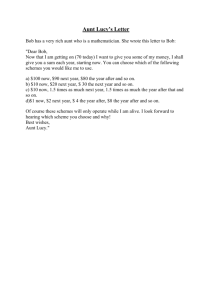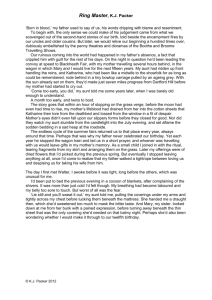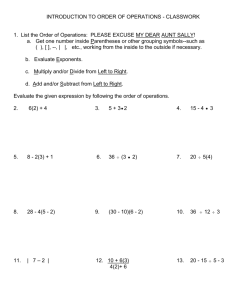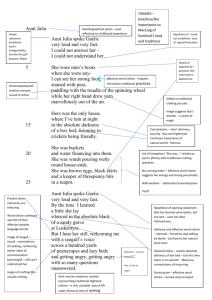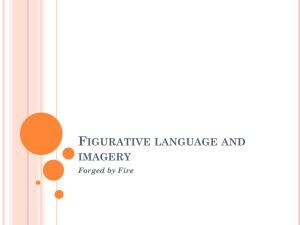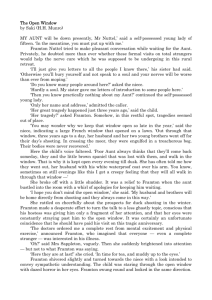Ethnic Stereotypes
advertisement
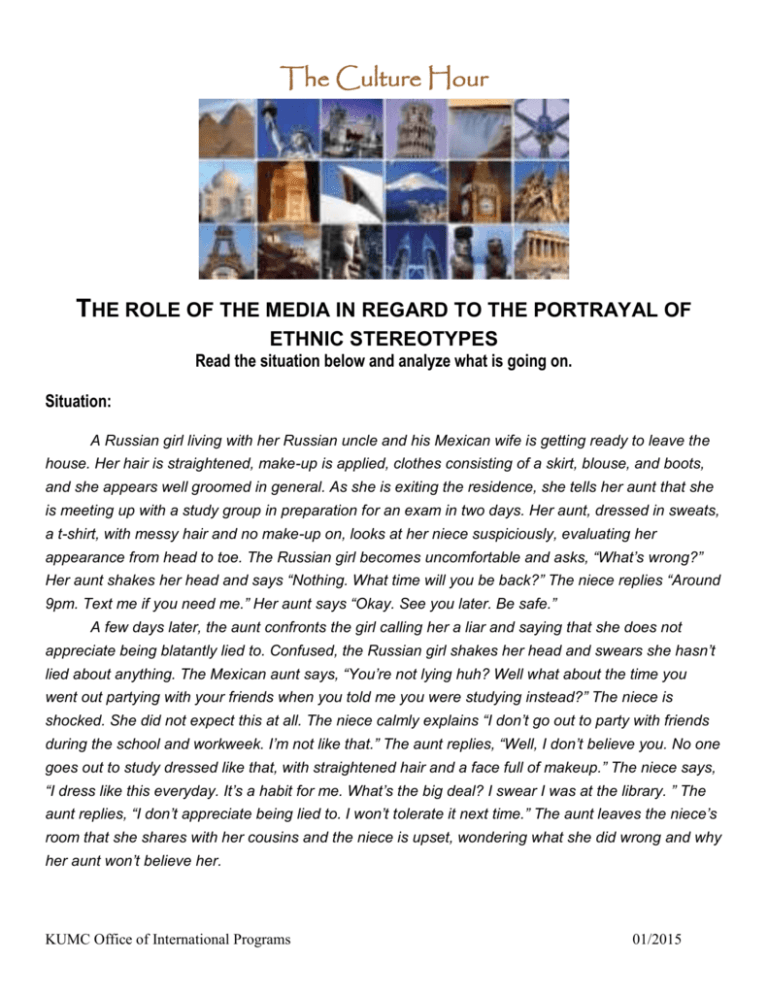
The Culture Hour THE ROLE OF THE MEDIA IN REGARD TO THE PORTRAYAL OF ETHNIC STEREOTYPES Read the situation below and analyze what is going on. Situation: A Russian girl living with her Russian uncle and his Mexican wife is getting ready to leave the house. Her hair is straightened, make-up is applied, clothes consisting of a skirt, blouse, and boots, and she appears well groomed in general. As she is exiting the residence, she tells her aunt that she is meeting up with a study group in preparation for an exam in two days. Her aunt, dressed in sweats, a t-shirt, with messy hair and no make-up on, looks at her niece suspiciously, evaluating her appearance from head to toe. The Russian girl becomes uncomfortable and asks, “What’s wrong?” Her aunt shakes her head and says “Nothing. What time will you be back?” The niece replies “Around 9pm. Text me if you need me.” Her aunt says “Okay. See you later. Be safe.” A few days later, the aunt confronts the girl calling her a liar and saying that she does not appreciate being blatantly lied to. Confused, the Russian girl shakes her head and swears she hasn’t lied about anything. The Mexican aunt says, “You’re not lying huh? Well what about the time you went out partying with your friends when you told me you were studying instead?” The niece is shocked. She did not expect this at all. The niece calmly explains “I don’t go out to party with friends during the school and workweek. I’m not like that.” The aunt replies, “Well, I don’t believe you. No one goes out to study dressed like that, with straightened hair and a face full of makeup.” The niece says, “I dress like this everyday. It’s a habit for me. What’s the big deal? I swear I was at the library. ” The aunt replies, “I don’t appreciate being lied to. I won’t tolerate it next time.” The aunt leaves the niece’s room that she shares with her cousins and the niece is upset, wondering what she did wrong and why her aunt won’t believe her. KUMC Office of International Programs 01/2015 QUESTIONS TO PONDER AND SHARE: 1. What ethnic stereotypes can you pick out from this story? 2. Are all stereotypes bad? 3. Have you ever been personally affected by a stereotype? 4. What is your opinion of the media’s role in the portrayal of ethnic stereotypes? 5. Do you feel like various forms of media (Facebook, Instagram, Pinterest, blog posts, news articles, etc.) affect how you view yourself and others? 6. Here are just some international perspectives and standards on what it means to be beautiful: a. Bulgaria: women are objects that are meant to be dolled up and always looking pretty, especially in the presence of a man b. Russia: young women are expected to look perfect from morning to evening in regard to clothes, makeup etc. women can be highly competitive with one another. Western media is also an influence on Russia’s beauty standards. c. Israel: women do not have to be flashy to be considered beautiful. The media has a positive, affirming influence on beauty standards. Individuality is appreciated. d. Moldova: Tradition is key. A woman’s upbringing is important in the perception of people regarding her beauty. e. Venezuela: What is considered perfect is symmetry and forms. Perfection is the ultimate goal. Plastic surgery is on the rise, and store mannequins have small waists, large breasts, and wide hips. Beauty pageants are a big deal. 7. How do you think we can improve the role that media plays in beauty in addition to topics such as international conflict coverage, society, etc.? KUMC Office of International Programs 01/2015
